When it’s time for choices …
“Guiding oneself” is no small task for school-age children making academic and vocational choices, and becomes more complex when we add variables such as having to learn a new language, integrate a new culture or into a whole new school system.
The educational path of the young newcomer has its share of challenges, and this is all the more true when they are at an age when they are forging their identity, living new experiences, learning new things and establishing new relationships…
There are many factors to consider when it comes time to find their way, such as values, interests, abilities, etc. For young new arrivals, other determinants can also be considered, such as the socio-economic and educational situation before and after migration, parents’ educational aspirations for them, support strategies, country of origin, etc.
In this context, it is important and justified for the parent and child to consult a guidance counsellor to discuss concerns about the student’s educational choices.
Confidential information
Note that for youth aged 14 years and over, the guidance counsellor must respect the confidential nature of information obtained in their professional practice. However, parents can express concerns and their need for information to the counsellor, who will make sure to answer the questions while respecting the confidential aspect of the meetings with the student.
When young people don’t know themselves very well, have no work experience, cannot look inward and clearly identify their personal traits, values, and even their interests, it is time to make choices, which may generate indecision and anxiety. This is particularly true for young immigrants who deal with countless uncertainties, feel a multitude of emotions and are confronted with:
- Over-abundant and often indecipherable information.
- The fear of making a mistake and giving up a dream.
- The range of possible choices (more than 4,000, 1,300 jobs, vocational, technical or university studies, etc.).
- The constantly changing world of work (placement rate, careers of the future).
- The impact of their decisions on their lives.
- The desire to please and not disappoint.
- The influence of parents, friends, teachers …
A valuable guide
The guidance counsellor supports the student throughout their educational process while taking into account his reality.
Specifically, the guidance counsellor is an expert in terms of assistance, evaluating psychological resources, personal resources and environmental conditions. The counsellor helps the student become aware of his personality traits, values and interests, to allow him to persevere in school and find his place in society and must also be present for parents who need help supporting their children.
Guidance counselling translates into personalized support for youth in their self-discovery, concrete and active exploration of educational, career and labor market information, confirmation and realization of their career plan. The counsellor mainly meets students one-on-one but is also called upon to visit students in class. Generally, the focus of intervention in high school is:
- Offering personal consultation services to help students in their academic and professional career.
- Facilitating access to educational and career information and documentation.
- Using standardized tools to better situate and follow students in their educational and career orientation.
- Informing students about options and placements at the time of enrollment to help them make wise choices in relation to their school career.
- Promote the guidance-oriented approach in collaboration with educational stakeholders.
- Actively contribute to supporting and informing teachers about various guidance activities.
- Involve, train and support parents in understanding career guidance.
The guidance counsellor must be a member of a professional order, namely the l’Ordre des conseillers et conseillères d’orientation du Québec (OCCOQ). The mission of the Order is to protect the public and ensure that the adviser respects the code of ethics. Only members of the Order are entitled to use the title of guidance counsellor.
At elementary school
Not all elementary schools have a guidance counsellor in their employ, however, due to the integration of Academic and Career Guidance Content it is increasingly possible to meet with one.
At secondary school
Generally, every high school has a guidance counsellor who can answer your questions. You simply need to inquire at the educational institution your child attends.
In private practice
The Ordre des conseillers d’orientation can help you find a professional in private practice, depending on your administrative region.
Local employment centres (CLE)
Job seekers who wish to reflect on their career orientation can contact local employment centres of the Ministry of Employment and Social Solidarity. Consult the ministry website for the list of CLEs.
Other organizations
Other employment organizations can also support youth and their parents, whether for guidance or educational and vocational information needs. This is particularly the case with Carrefours jeunesse-emploi (CJE), local employment centers (CLE) and the Réseau des services spécialisés de main-d’oeuvre (RSSM).
